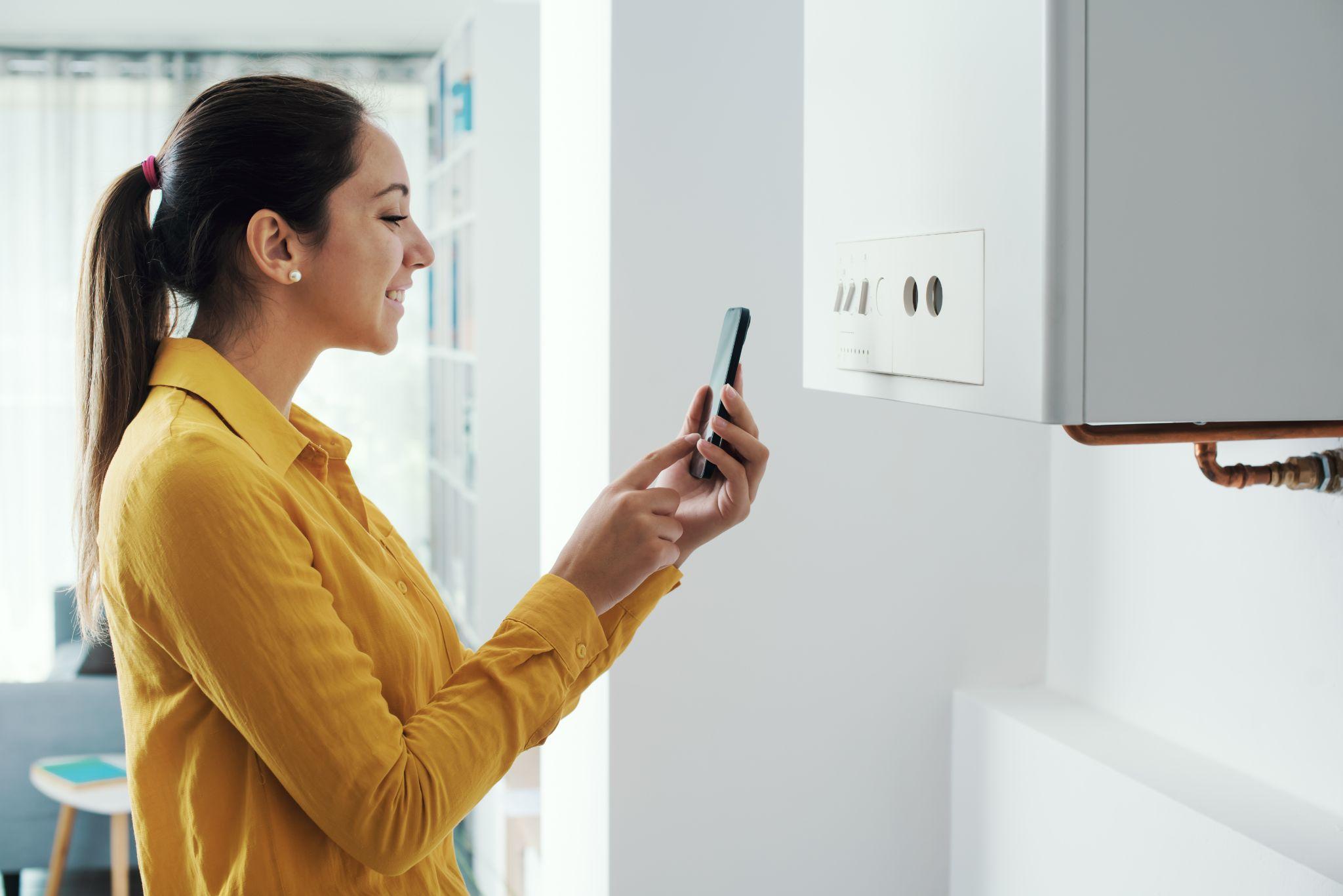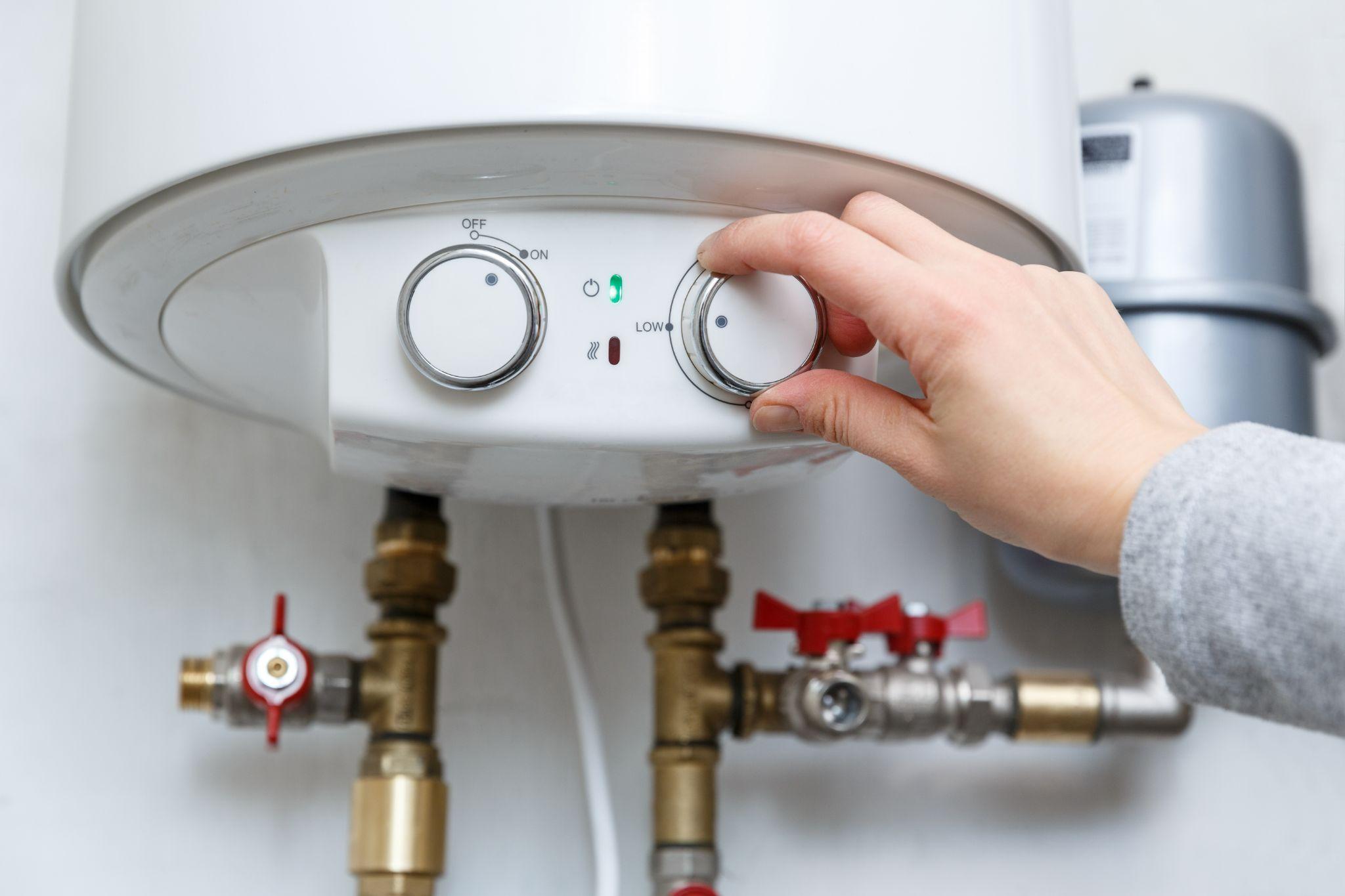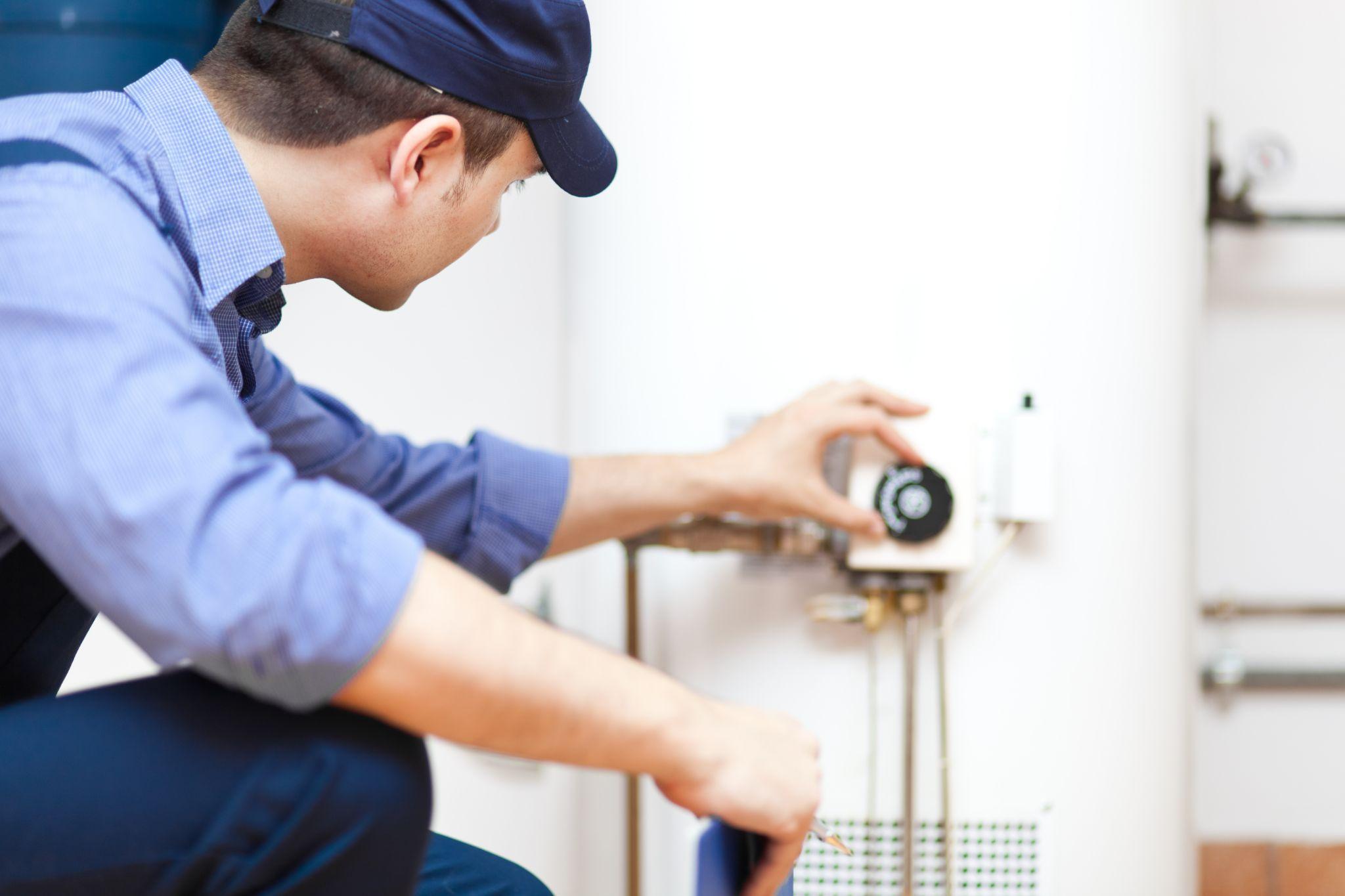Save Energy with Your Water Heater This Summer

According to the Department of Energy, 20 percent of your home’s energy use is for water heating. Furthermore, the average household uses about 64 gallons of hot water daily. So, looking for ways to reduce water heater energy use is a great way to lower your water heating costs.
Before summer is over, now is the perfect time to start implementing cost-cutting measures by checking out these excellent ideas and tips.
Upgrade to Water-Saving Fixtures
Switching out your faucets and showerheads with ones that use less water cuts your hot water usage. Your local plumber can provide you with a selection of water-saving fixtures for your home.
Turn Down the Temperature Setting

You can lower your natural gas and electricity consumption by reducing the temperature setting on your water heater. You need to ensure you do not turn it below 120 degrees Fahrenheit because this is the lowest temperature where harmful bacteria are killed.
Insulate Your Water Tank
Your water heater uses energy to maintain your desired temperature by running periodically to compensate for heat loss. Heat loss transfer occurs when the tank is not insulated as the heat slowly escapes.
Insulating your tank helps create a barrier to reduce how fast the heat is lost. As a result, your tank runs less often to keep the water hot.
Insulate Your Pipes
Heat loss transfer also occurs if your hot water pipes are not insulated. As you run hot water, the water loses some of its heat. Therefore, the water heater has to work harder and run longer to provide the hot water you need. Having your pipes insulated helps reduce heat loss and keeps the water hotter.
You should also insulate the incoming cold water supply line that connects to your water heater. Insulating this line helps reduce temperature differences as the cold water enters the tank, resulting in less heating time and energy usage.
Upgrade Your Appliances
You could get a new washer or dishwasher with energy efficiency and water-saving features to reduce hot water usage. Some new appliances also have steam settings that use a fraction of hot water to clean clothes and dishes.
Only Run Full Loads
Get into the habit of not running the dishwasher or washing machine unless you have a full load. Partial loads waste hot water and increase your energy use.
Wash Your Clothes on Cold
Another way to lower hot water usage is only to use cold water to launder your clothes. Most detergents work just as effectively in cold water.
Wash Dishes in Your Dishwasher
It might seem faster to wash dishes by hand. However, you are wasting more hot water than loading and running the dishwasher. According to the NRDC, you use 27 gallons of water or more to hand wash your dishes compared to as little as three gallons using an Energy Star-rated dishwasher.
Even older dishwashers use less water ranging from five to ten gallons a cycle. Plus, you do not need to pre-rinse dishes before putting them in the dishwasher. You just need to scrape off excess food.
Schedule Water Heater Maintenance
Regular water heater maintenance helps ensure your water heater is operating properly. Over time, the heating elements will lose efficiency, so they should be replaced regularly.
In addition, sediment and particles accumulate inside the tank, further reducing water heating efficiency. Have your plumber flush your tank yearly as part of your annual maintenance.
Furthermore, maintenance helps identify potential problems and resolve them before they become major repairs.
Fix Any Water Leaks
If you have any hot water leaks in your plumbing system, you need to have those fixed. Not only are you wasting hot water, but you are also causing water damage to your house. As the water damage worsens, it promotes wood rot, mold, and mildew growth.
Fix Dripping Faucets and Fixtures
Do you have dripping faucets and fixtures where the drips are coming from the hot water supply? If so, these drips will cause your water heater to run more often. You are also wasting water. Resolving the drip could be as easy as having your plumber replace a washer inside the faucet handle.
Reduce Water Usage
Another way to reduce water heater energy use is to change your hot water usage habits. For example, instead of taking daily baths, take showers instead. If you have a bad habit of leaving the warm water running while brushing your teeth, break the habit by shutting the water off until you are ready to rinse.
Upgrade Your Water Heater
As water heaters age, they slowly lose their energy efficiency. So, if your current water heater is ten years or older, upgrading to a new tank-type heater can help reduce your energy usage. New tank-type heaters are more energy efficient than older models.
Better yet, upgrading your water heater to a tankless water heater will provide you with the most energy savings. Tankless water heaters make hot water on demand and provide an endless supply of it. Unlike tank-type heaters that run periodically to maintain the desired temperature, tankless heaters only run when you use hot water.
As a result, you save a significant amount of energy compared to tank-type heaters—up to 40 percent in energy savings. Plus, tankless water heaters are an upgrade that will add value to your home. Even though they cost more upfront, they have an average lifespan of about 25 years.

Water Heater Services in San Antonio and Austin
Annual or bi-annual water heater maintenance from Christianson Air Conditioning & Plumbing ensures water is not wasted by finding corrosion, improper venting, leaks, and other potential problems that reduce energy efficiency.
When it is time to upgrade or replace your water heater, we provide access to energy-efficient tank-type water heaters and even more energy-efficient tankless water heaters with complete installation.
To schedule water heater maintenance or to request a quote on a new water heater, please feel free to contact us at 512-246-5400 today.
Sources:
- U.S. Department of Energy. Water Heating.
- NRDC. 9 Tricks That Save Tons of Water.



Sorry, comments for this entry are closed at this time.